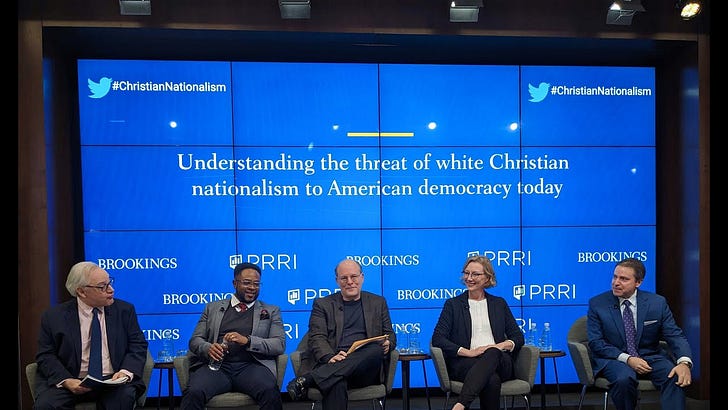A Virtual Roundtable on the Threat of Christian Nationalism, Part 4 of 4 by Robert P. Jones
A conversation with Kristin Du Mez, Jemar Tisby, and Robert P. Jones
I hope you’ve been following our unique experiment here on Substack. I’m co-hosting—along with
and —a four-part virtual roundtable discussion on the threat white Christian nationalism poses to our democracy and our churches.The idea for this series was born when the three of us came together on February 8 in Washington, DC, for a panel to discuss th…
Keep reading with a 7-day free trial
Subscribe to White Too Long by Robert P. Jones to keep reading this post and get 7 days of free access to the full post archives.


